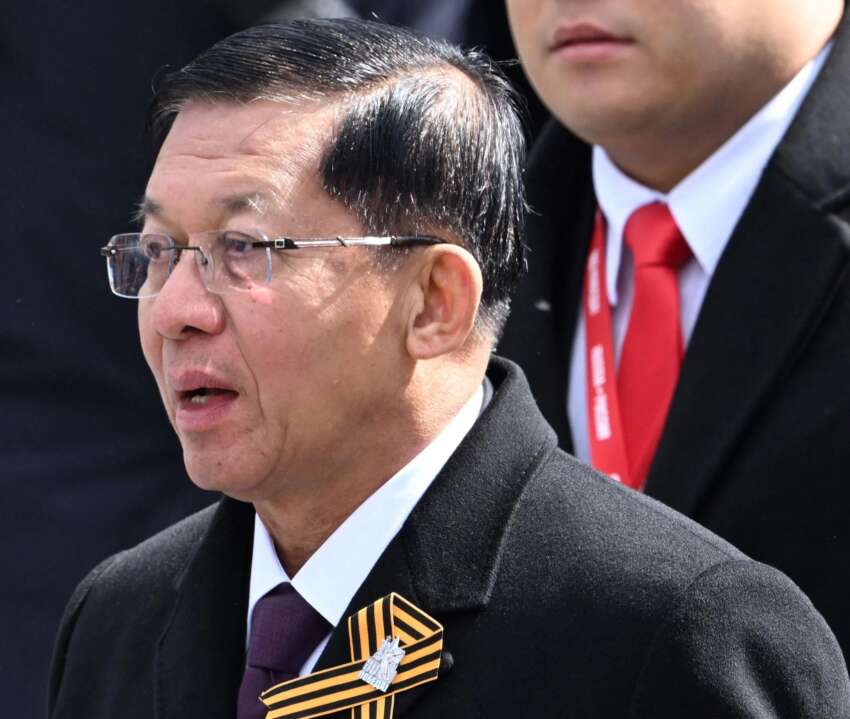
Chinese President Xi Jinping and military council leader Min Aung Hlaing met on May 9 to discuss the security of Chinese interests and personnel in Myanmar. During the meeting, the Chinese President directly requested practical guarantees for the safety of Chinese staff, organizations, and projects in Myanmar. He also demanded effective action against cross-border crimes, including online gambling and telecommunications fraud occurring in border regions.
Min Aung Hlaing responded by emphasizing the importance he places on relations with China, expressing his desire to continue as China’s trusted partner. He promised to enhance cooperation in economic, trade, and energy sectors while guaranteeing full security for Chinese projects and personnel. This meeting took place during Min Aung Hlaing’s attendance at the World War II victory celebration ceremony in Moscow, Russia. The military council, which lacks international recognition, considers gaining Chinese support crucial at this time. China remains Myanmar’s largest foreign investor, with significant economic interests including oil and natural gas pipelines and infrastructure projects. However, the people of Myanmar continue to resist the military dictatorship, and Chinese projects have become targets of People’s Defense Forces.
The meeting’s timing is significant as it occurred through Russian facilitation while Min Aung Hlaing was in Moscow for the 80th anniversary celebration of Victory Day. According to military sources in Naypyidaw, the meeting was arranged with Russian assistance after considerable effort from the military council leader to secure an audience with the Chinese President. This diplomatic engagement comes at a time when the military council faces widespread resistance from the Myanmar people and increasing isolation from the international community, making Chinese support particularly crucial for the regime’s survival. However, the military council’s promises of security for Chinese interests come amid ongoing conflict throughout the country, where the regime has failed to establish effective control over many areas, particularly in regions where major Chinese investments are located.



